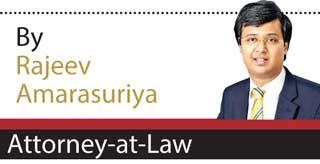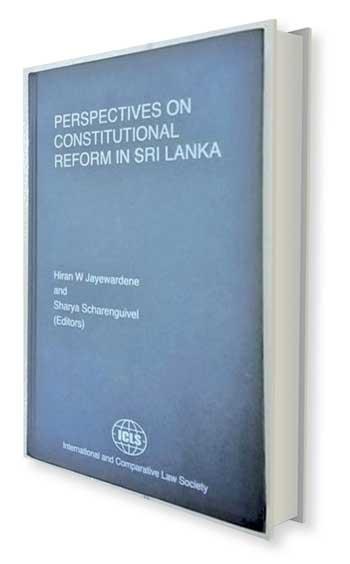Reply To:
Name - Reply Comment
The pertinent question is why do we have to resort to consecutive and consistent constitutional reforms?
 Sri Lanka presently appears to be at an important crossroads in the sphere of constitutional reform and law, given that there is an impending Draft of a New Constitution being formulated by the Government. However, the irony is that this crossroads is a situation that Sri Lankans have had to keep revisiting frequently in its post-independence history which also poses a question on whether we keep taking a wrong direction time and again.
Sri Lanka presently appears to be at an important crossroads in the sphere of constitutional reform and law, given that there is an impending Draft of a New Constitution being formulated by the Government. However, the irony is that this crossroads is a situation that Sri Lankans have had to keep revisiting frequently in its post-independence history which also poses a question on whether we keep taking a wrong direction time and again.
Axiomatically, our country in its post-Independence history has engaged in constitutional reforms every several years in almost every decade up to date. Some highlights being - the enactment of the two Republican Constitutions within one decade, sixteen Amendments to the 2nd Republican Constitution within a span of another decade (from its enactment), the 17th, 18th, 19th and the most recent 20th Amendment all being within two decades from each other. The cherry on top being that drafting of a new constitution was on the cards and in motion with the election of the previous Government in 2015, albeit in a different direction than what is presently being drafted by the present Government in power.

The pertinent question is why do we have to resort to consecutive and consistent constitutional reforms? While it would be correct to say that constitutional reform is a vital tool to meet the genuine requirements of evolving times, the aspirations of the people and the societal norms of a State, the other pertinent question would be whether such reform is pursued for this genuine purpose which would generally require broad consensus or whether the same is pursued for partisan purposes with partisan consensus?
In this said context, the publication – ‘Perspectives on Constitutional Reform in Sri Lanka’ Edited by Dr. Hiran Jayewardene and Prof. Sharya Scharenguivel and published by the International and Comparative Law Society is a timely publication which very effectively collates and presents a compilation of articles that dissects many aspects of Constitutional making and the Constitution itself under six areas; (a) Evolution of Constitution Making; (b) Conceptual Approaches, Change, Successive Attempts and Alternatives; (c) The Role of the Judiciary and the Attorney General; (d) Devolution of Power; (e) Human Rights; (f) International Treaties; and (g) Recent Constitutional Amendments.
It must be said that what sets apart this book on this topic from other publications is the wide breadth of the Authors of the Articles. Among other things, the authors differ in generation, schools of thought and background which not only makes this publication apolitical, but also makes the perspectives provided to be even more thought provoking and compelling
It provides invaluable insight to professionals, academics and students in the Legal field, policymakers, and of course to all persons of the wider public that actively participate or are interested in the topic of Constitutional reform.
It must be said that what sets apart this book on this topic from other publications is the wide breadth of the Authors of the Articles. Among other things, the authors differ in generation, schools of thought and background which not only makes this publication apolitical, but also makes the perspectives provided to be even more thought provoking and compelling. In a like vein, the similarity of the authors of being highly renowned and distinguished figures is a testament in its own of the quality of their contributions.
Rajeev Amarasuriya is the Secretary of the Bar
Association of Sri Lanka